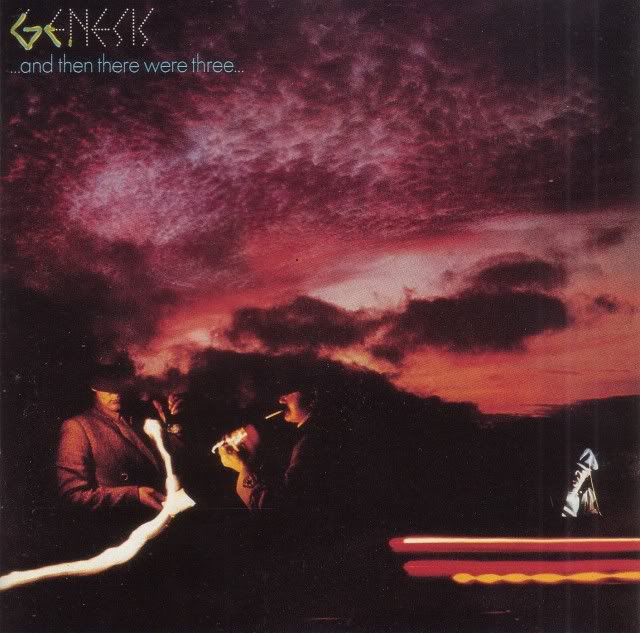
And Then There Were Three (1978)

1.Down and Out
2.Undertow
3.Ballad of Big
4.Snowbound
5.Burning Rope
6.Deep in the Motherlode
7.Many Too Many
8.Scenes From A Night's Dream
9.Say It's Alright Joe
10.The Lady Lies
11.Follow You Follow Me
With the departure of Steve Hackett in 1977, Genesis officially reduced itself to a trio—Banks, Rutherford, and Collins—the core triumvirate that would remain intact for the next fifteen years. The album’s title, laconic and faintly tongue-in-cheek, reflected not just a numerical change but a quiet recalibration of purpose. There was, initially, some discussion about finding a replacement guitarist, but with Rutherford already well-versed on both bass and six-string duties, the decision was made to carry on as a three-piece. And carry on they did.
At this point, Genesis still retained their reputation as cerebral art-rockers—a band beloved by a discerning few and largely unknown to the AM radio public. ...And Then There Were Three..., while not an overt declaration of commercial intent, does mark a perceptible shift. The compositions are notably more concise—nothing exceeds the seven-minute mark—and there is a newfound polish to the songwriting that suggests, if not a full courtship of the airwaves, at least a flirtation.
Predictably, cries of “sellout” echoed from the usual quarters—those obstinate traditionalists for whom any deviation from epics and allegory constituted betrayal. In truth, such claims feel overstated. The album retains much of the DNA of A Trick of the Tail and Wind & Wuthering, and though Hackett’s absence is theoretically significant, in practice, the difference is subtle. The band’s identity, by now, was more tied to Banks’s keyboards and Collins’s rhythmic sensibility than to any one guitarist’s timbre.
There are, to be sure, transitional textures at play. The lead-off track, Down and Out, is an underrated burst of kinetic energy—Collins’s drumming ferocious and unpredictable, the arrangement tight yet deceptively intricate. Elsewhere, Undertow, Many Too Many, and Snowbound exhibit a growing fondness for melodic clarity and harmonic warmth. These are not pop songs, per se, but they are constructed with a keen awareness of what a pop song requires. The album’s lone chart flirtation, Follow You Follow Me, arrives as the final track—a gently rolling, acoustic-led ballad that caused consternation in certain fan circles and mild curiosity everywhere else. It remains one of their more successful attempts to straddle the line between accessibility and artistry, its charm lying in its restraint.
Not every experiment lands. The Ballad of Big lurches between ideas without ever settling, while Deep in the Motherlode, despite promising narrative ambitions, succumbs to repetition—Banks’s synth motif recycled past the point of endurance. Elsewhere, tracks like Burning Rope and The Lady Lies give the distinct impression of musicians quietly yearning to return to their twelve-minute epics but observing, for now, self-imposed restraint. The progressive instinct, it seems, dies hard.
It has been suggested—even by members of the band themselves—that ...And Then There Were Three... is something of a misstep. This seems unduly harsh. If the album lacks the cohesion of its predecessors or the chart presence of its successors, it nonetheless succeeds as a document of transformation. It captures Genesis at a delicate juncture—no longer quite the band of myth and fantasy, not yet the pop behemoth they would become, but somewhere in between: refined, searching, and still resolutely their own.
The venues were getting bigger. The audiences, broader. The radio success would follow soon enough. But here, on this quietly transitional record, Genesis showed that a band can lose members and still retain its essence—so long as the music continues to evolve.
Go back to the main page
Go To Next Review